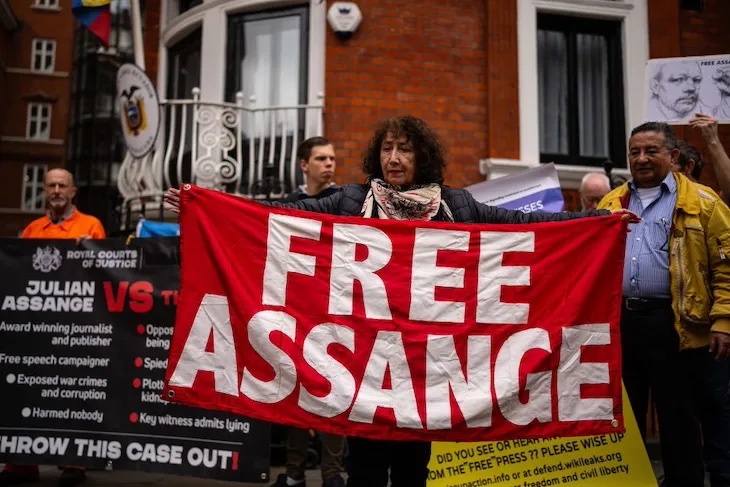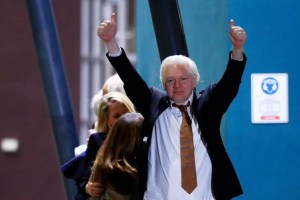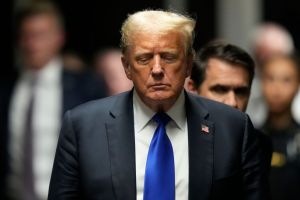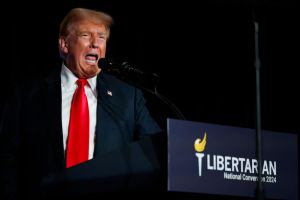Stella Assange’s elation was palpable, after what she has described as a whirlwind seventy-two hours. She was speaking to the BBC in Australia, where she was waiting to be reunited with her husband, the WikiLeaks founder Julian Assange, who had just been freed from prison in the UK under a three-way deal between the UK, the US and Australia.
Assange was due to travel to Australia via the Mariana Islands, a US dependency in the Pacific, where a judge was expected to accept his plea of guilty to a single charge under the US Espionage Act, relating to classified material published on his WikiLeaks site back in 2010. He was to be sentenced to “time served” — the five years he spent on remand in the UK’s top-security Belmarsh prison — and released with no further charge on the books or penalty in waiting.
In one sense, this was a deal that had been waiting to happen, ever since the involvement of Assange’s native Australia was first disclosed late last year. The legal tussle between the UK and the US had become so fraught that only a third party could realistically have cut through the tangle of conflicting interests. Australia was a logical, but also an imaginative, choice, given the Commonwealth country’s conspicuous lack of interest in the fate of its beleaguered citizen over the years.
Assuming everything proceeds as planned, Assange and his family — he has two children with Stella, born during his detention — will now start a new life in Australia, where his father and other relatives live. After twelve years in confinement, first as a fugitive in the Ecuador embassy in London, then in Belmarsh prison, he will need time to rebuild his health, and his family will need time to adjust.
None of this will be easy, but it will be a huge improvement on the likely alternatives: continuing court battles in the UK, which would leave him in prison, still without charge, or extradition to the US with the risk that he could face additional charges and many years in prison.
All that said, however, the outcome leaves a lot to be desired, as Stella, a lawyer herself, implied in the guarded nature of her initial comments. Assange’s freedom was essentially the result of a US-style plea bargain, in which the defendant pleads guilty in return for a lesser charge or sentence. The practice of plea-bargaining is ethically dubious anyway, but it is particularly so in this case, where it is highly contestable whether Assange had any charge to answer, least of all in the US.
His crime, as claimed by the US authorities, was to have published material that damaged US national security and endangered lives. This included video footage of a US helicopter crew firing on civilians in Iraq, and details from diplomatic cables that cast the US in a highly negative light.
Assange and his lawyers responded that he had been careful to redact any material that could cost lives. Their main defense, however, related to jurisdiction. Assange was under no oath of allegiance to the United States and had broken no US law. He was acting as publisher and journalist, not leaker or traitor. He was not in the US at the time, he was not a US citizen: how could the US argue that he was subject to their jurisdiction?
The distinction between publisher/journalist and leaker was another point of his defense, and elevated the case into a cause celebre for many journalists, who saw US moves to prosecute him, and the prospect of the UK agreeing to his extradition, as a test of free speech. Notably, his support from the journalistic fraternity was more vocal in continental Europe and South America — parts of the world where free speech has been restricted in living memory — than it was in the US and the UK. Although his supporters in the English-speaking world made up for their fewer numbers with their fervor.
It can also be argued that the defense of Assange was additionally complicated by the transatlantic “special relationship,” and the lop-sided nature (to many British lawyers) of extradition provisions. While the UK insists that its courts are independent of politics, it was hard to see Assange’s continuing detention as unrelated to the UK’s general reluctance to cross the US. Once the US had submitted its extradition request, the successive hearings could not but be seen in this wider context.
There were two occasions, however, when the tide seemed suddenly to turn in Assange’s favor. The first was in January 2021, when a judge accepted that Assange’s mental state placed him at risk of suicide if extradited to a US prison.
The second was earlier this year, when the High Court probed rather more deeply than might have been expected into the rights Assange would be able to exercise in the US. For instance, might prosecutors bring additional charges, once they had their quarry within their jurisdiction, and did the first amendment on free speech — a key part of Assange’s defense — apply to a non-US citizen? US equivocation on this score emerged as a crucial sticking point. Last month, the High Court ruled that Assange could mount a final appeal — which is what may ultimately have prompted the deal on his freedom to be done.
There was also a sense, both in the UK and the US, that it was time for the decks to be cleared. Assange’s continued detention without trial, going into a sixth year, was a source of some embarrassment for the UK in at least some judicial and diplomatic circles, calling into question UK politicians’ frequent preaching to other countries about human rights, independent courts and free speech.
The United States for its part, never likes to be on the losing side, and there was a real possibility, after the High Court issued its challenge on free speech, that the US could lose. However much US officials might cite the separation of executive and judicial powers, this would not be a good look for any administration, in particular for a president seeking re-election.
The agreement that Assange would accept an appearance in a US court (albeit one thousands of miles from the US mainland) and plead guilty to a crime that he and his supporters had hitherto strenuously denied, was the face-saving formula eventually found. It was an ingenious solution, even if it represented a climbdown, in legal principle, for Assange.
It should also be pointed out how rare US judicial concessions are, especially when, as in the Assange case, the US has invested so much patriotic and emotional capital in securing its desired outcome. Indeed, the former Republican vice president, Mike Pence, lost no time condemning the administration for weakness — which only confirmed how much more politically costly a court defeat would have been for the White House.
The deal nonetheless leaves a bitter taste. It is widely granted that Assange is a stubborn and prickly character, whose personal loyalty might leave something to be desired. In other words, he was not an easy individual to support, even as the causes that he came to represent — of free speech and publication of classified information in the public interest — cast him as a political prisoner.
His freedom may also have its limits. He will doubtless be barred from the US and perhaps the UK, which is where he made his life. He will go down as a spy in the US, and the question of whether the revelations he published cost lives will remain open. In the end, the balance sheet is probably as even as it could realistically be, and the diplomats and lawyers who had the imagination to pull it off deserve more recognition than they will probably ever receive.
This article was originally published on The Spectator’s UK website.


















